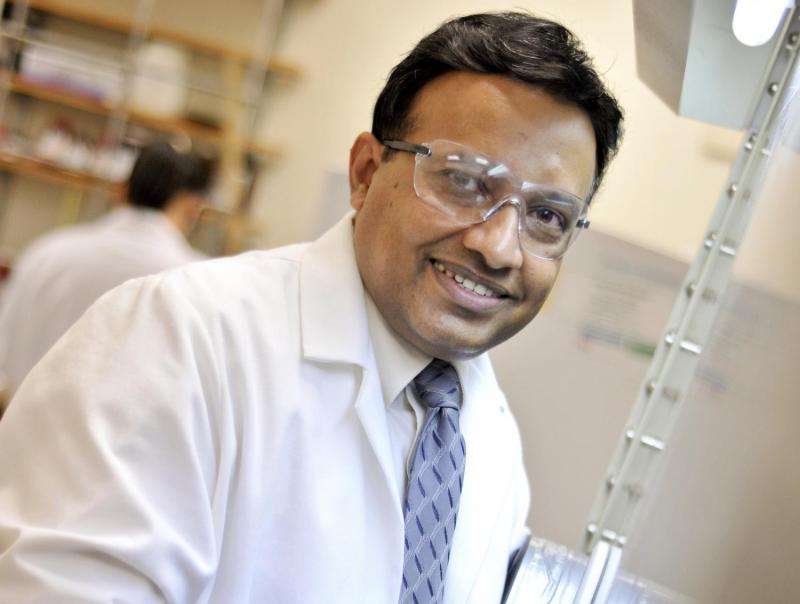New class of catalysts to transform cheap, widely available hydrocarbons into industrial molecules

Chemists at The University of Texas at Arlington are developing novel ways to use metal ions to activate simple hydrocarbons present in natural gas or petroleum products to produce more complex molecules valuable to the chemical and pharmaceutical industries.
The research also involves developing a new portable, easy-to-use sensor to detect the presence of some specific gaseous hydrocarbons in plant product storage facilities. Current technology is more complex, expensive and not portable.
"We want to develop a new class of catalysts to do difficult chemistry, like activating inert molecules and converting them to more useful products," said Rasika Dias, UTA Distinguished Professor of Chemistry and Biochemistry and leader of the project. "Then we will study the properties of the reactive intermediates –— chemical substances produced during the conversion process, which usually involves a series of steps. Finally, we will also develop the new portable sensor for specific gaseous molecules like ethylene, which is a plant hormone, in a specific environment."
The project, supported by a three-year grant from the Welch Foundation, involves using highly fluorinated supporting ligands – molecules that bind to a central metal atom – on metals such as copper, silver and gold, to generate new types of reactive metal sites, Dias said.
Fluorine is the most electronegative of the elements, meaning it tends to "grab" electrons from other bonded atoms, including metal ions. As a result, the metal ions attached to fluorinated support ligands tend to go after or attract nearby molecules in search of electrons and activate them in the process.
During the past few years, Dias' laboratory has developed several highly fluorinated nitrogen-based ligands and utilized them successfully in the stabilization of reactive metal-containing species in bottleable form. Some of the metallic systems serve as catalysts to prepare pharmaceutical intermediates from cheap and widely available hydrocarbons and to activate oxygen for oxidation chemistry.
"This project is an attempt to extend this work to multi-metallic systems that are more relevant to heterogeneous catalysis and industrial processes," Dias said. "Fluorinated ligands, such as Teflon, are uniquely suitable for this work because they are robust and will produce long-lasting catalysts with highly active metal sites."
Among the molecules which will be used in the project are alkenes and alkynes. An alkene is a hydrocarbon having one carbon-carbon double bond, such as ethylene and propylene. An alkyne is a hydrocarbon having one carbon-carbon triple bond, such as acetylene.
"We can see how the simple, widely available molecules through the metal-mediated bond breaking and making process can be transformed into new products," Dias said. "We will investigate their structures of reactive metal bound species, and probe how nearby metal ions assist with each other to form desired products."
The second stage of the project focuses on sensors, which Dias and students in his lab will use to detect how many small gaseous molecules, such as ethylene, are in a given environment. "Right now, you have to have complicated equipment to detect these simple molecules. We're trying to make a sensitive as well as an easier to use, more portable system," Dias explained.
Fred MacDonnell, professor and chair of UTA's Department of Chemistry & Biochemistry, said the project is an example of the University's commitment to having Global Environmental Impact, one of the main pillars of UTA's Strategic Plan 2020: Bold Solutions | Global Impact.
"Research in hydrocarbon activation is essential if we are to fully realize the tremendous potential of our natural gas reserves, and future sustainable energy conversion processes, such as solar to fuels and electricity to fuels," MacDonnell said. "Professor Dias' research in this area is at the forefront of methane activation, which is the most abundant hydrocarbon, as the principle component of natural gas."
Provided by University of Texas at Arlington

















